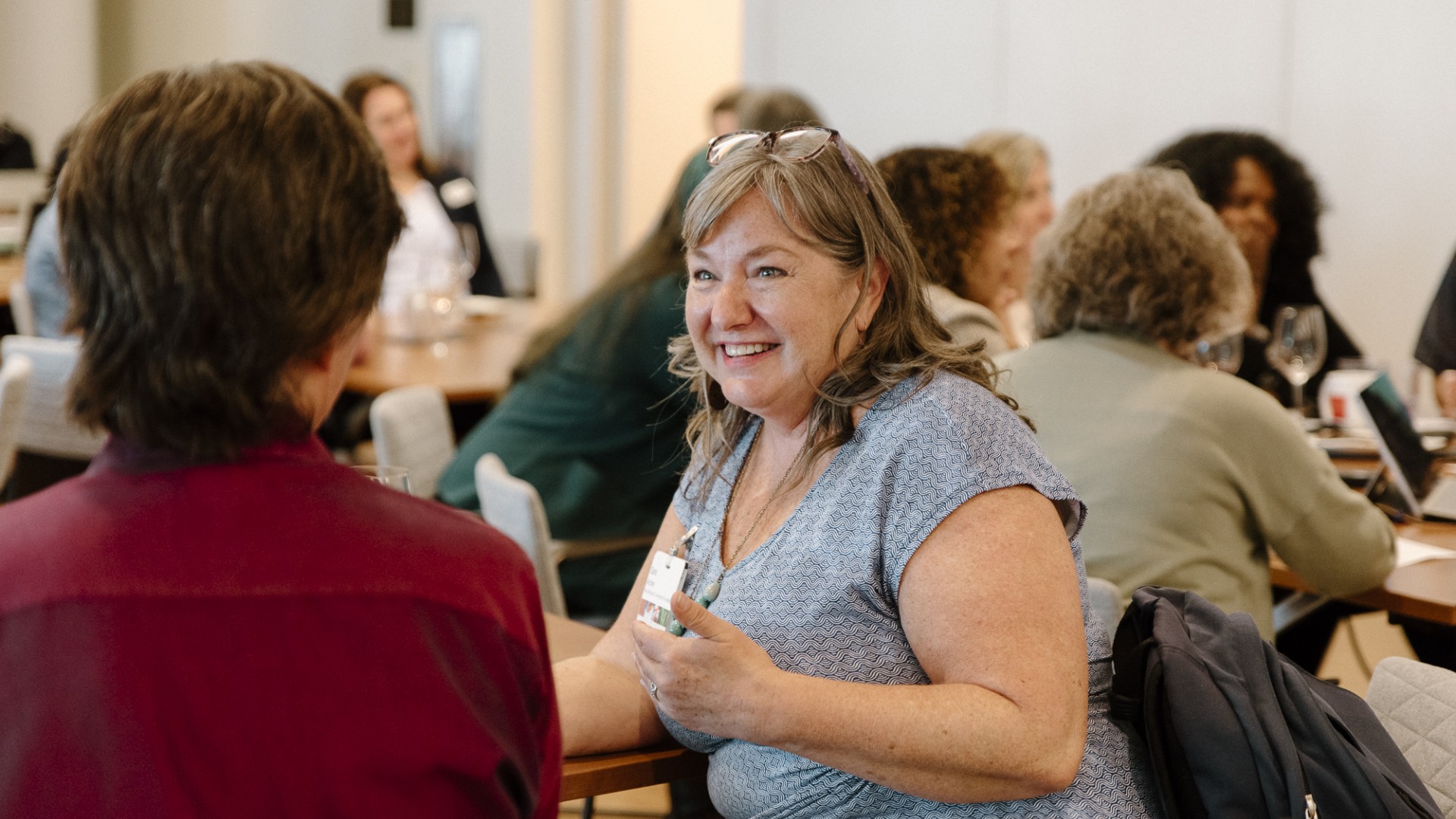
At a recent Building Community Philanthropy Convening, we hosted a panel with Karri Matau and Nashika Stanbro from the Community Foundation of Snohomish, Ron White from the Humboldt Area Community Foundation and Katie Carter from the Pride Foundation. All of these leaders offered valuable perspectives on advancing racial equity within community foundations. From this conversation, we pulled out four key practices our network can learn from – check them out below:
1. Build an Aligned Board
Focus on adding folks to your board who are committed to advancing their own knowledge of equity issues and centering community. Share your values with potential board members before inviting them to join. When you invite individuals who aren’t aligned with your mission, it often leads to more challenges down the line. A well-aligned board is foundational for fostering a culture of equity.
The Pride Foundation implemented an open recruitment process for their board and received over 50 applications. They revamped their application questions to ask folks about their analysis of power and their commitments to gender justice and racial equity. This ensured they weren’t just bringing in traditional board skills but also diverse life experiences that are essential for the organization’s growth.
2. Transforming Organizational Culture
“If you want things to change you actually have to change them.” Foundations must invest in transforming their internal cultures so that their values and practices align with racial equity goals.
- One-off trainings are not enough. Dedicate time in each board meeting to focus on equity and allocate both budget and time for continuous learning for both board and staff members. This fosters a deeper understanding and commitment of equity throughout the organization.
- Apply what you learn in real-time; stagnation in the learning phase leads to missed opportunities for change.
3. Embracing Disruption and Courageous Leadership
The future of community philanthropy requires courageous leadership that challenges the status quo.
- The Community Foundation of Snohomish County’s board voted to become a disruptive organization in pursuit of racial equity. This led them to shift their investment practices. They now have a finance committee that includes community members with the goal of having the greatest community impact vs the greatest return on investment.
- Identify the donors that are interested/curious about equity issues in your community (even if it’s just one!). For Humboldt Area Community Foundation, this resulted in creating a social justice donor circle that has distributed $1 million over five years. They are now launching a second giving circle, deepening their community impact.
- Rather than asking, "what consequences will happen if we do this?" focus on, "what will be better by doing this work?" Courageous leadership is about taking risks that lead to greater equity and justice.
- “Never say you don’t have enough power.” We all have enough power to take small actionable steps to embed equity into our practices.
4. Redefining "Community" and Shifting Accountability
“We can’t call ourselves a community foundation if we’re not serving community.” We must center those impacted most by the issues we’re working on, not donors.
- Set racial equity goals for staff, board members and the CEO. This work should not just live with one person or one department.
- Racial equity should be embedded in all of your workplans, not a separate part of your work.
- Include relationship building as part of your work. For Karri, who is with the Community Foundation of Snohomish, that means meeting with a hundred new community members each year, which has led to folks joining their board, and various committees.
These insights from Karri, Ron, Katie and Nashika highlight the steps community foundations can take to advance equitable practices, center community needs and create lasting change. By aligning their boards, investing in cultural shifts and embracing courageous leadership, foundations can better support the communities they serve and work toward a future where everyone has the opportunity to thrive.

